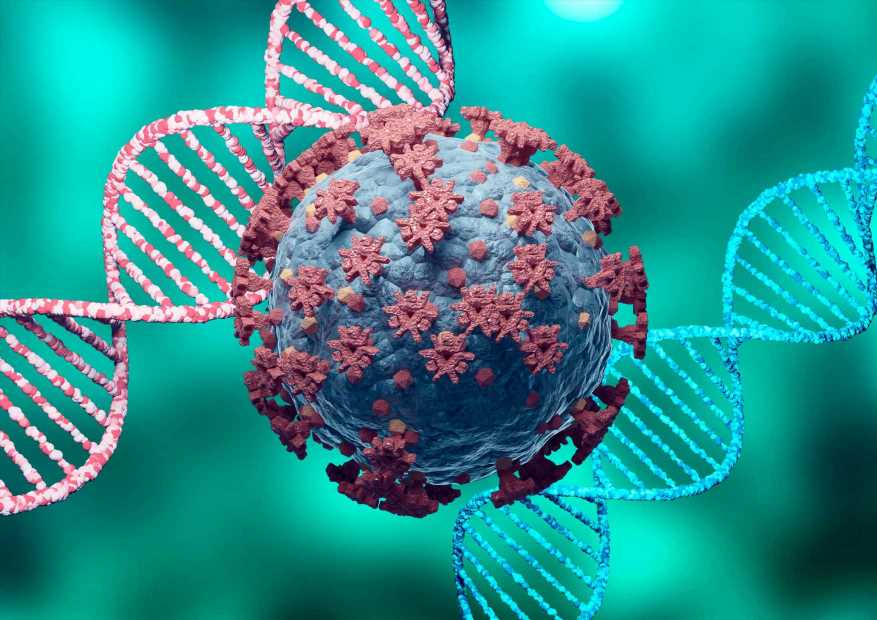THOSE who've had Covid are at increased risk of dying for up to two years after infection, research suggests.
Most Brits have already been infected with the bug, with many having had it more than once.
It's worth bearing in mind that the majority of people have a level of protection from the virus following a mammoth vaccine rollout, as well as prior infection.
Scientists from the US have discovered those hospitalised by Covid have a higher chance of dying during the years after infection, compared to people who didn't fall ill.
Previous studies found respiratory and heart issues persisted formonths after an inital Covid infection.
But the new study, published in Nature Medicine, found as far as two years after infection people who were hospitalised with the bug faced a far greater chance of dying.
Read more on Covid
Covid can trigger killer high blood pressure – even if you weren’t that unwell
Covid booster jabs ‘to be sold on UK high streets’ after NHS list cut by 12mil
They were also at higher risk of severe health complications like lung disease, diabetes, and general fatigue – also known as 'long Covid'.
The experts found two years after infection the risk of death declines.
For patients who weren’t hospitalised by the killer virus, it takes just six months for the risk of death to no longer be significant, it added.
However, this group isn't spared of all the horrible side effects of the virus.
Most read in Health
Holiday warning to anyone heading to Spain over new outbreak of mpox
Docs perform UK’s 1st womb transplant with living donor – the patient's sister
Here's how long it would take to burn off calories from fave food by having sex
Map reveals exactly where you can and can't drink tap water on holiday
Those who didn't end up in hospital are at increased risk of over 20 medical conditions, it said.
Among these conditions, are: cardiovascular issues and blood clotting trouble, diabetes, gastrointestinal problems and kidney disorders.
Study author Doctor Ziyad Al-Aly, an epidemiologist from Washington University, said: "A lot of people think, ‘I got Covid, I got over it and I’m fine.
"Maybe you’ve forgotten about the Covid… but Covid did not forget about you.
"It’s still wreaking havoc in your body."
The study was based on the medical records of almost 140,000 US veterans who were diagnosed with Covid during the early days of the pandemic.
Scientists compared the veteran's health data against a control group of almost six million who weren’t known to have been infected.
The study highlights that the sample group was not representative of the general population as veterans were older and mostly male.
It comes as a new, mutated form of Covid has popped up.
Dubbed BA2.86, the new Omicron spin-off comes hot on the heels of the EG5.1 “Eris” variant, which made its way onto the Covid stage in July.
Eris currently accounts for around 15 per cent of all cases in the UK, according to UK Health Security data.
Between August 6 and August 12, 6,289 people had a confirmed positive test result in England.
Read More on The Sun
Vet reveals three dog toys all pet owners should never buy
Millions of households can apply for energy bill support worth £600 in weeks
This shows an increase of 17.4 per cent compared to the previous seven days.
Experts have suggested this sudden surge in cases could be because of poor weather in July prompting people to gather indoors without ventilation to keep them safe.
What are the current symptoms of Covid?
Omicron can easily be mistaken for a common cold.
The easiest way to check you have Covid is to take a test.
The most recent data from ZOE states that people who are catching Omicron are showing specific symptoms.
Data from app states that there are 20 symptoms Brits should be on the lookout for, including:
- Sore throat
- Runny nose
- Headache
- Blocked nose
- Cough no phlegm
- Sneezing
- Cough with phlegm
- Hoarse voice
- Muscle pain aches
- Fatigue
- Dizzy light headed
- Altered smell
- Swollen neck glands
- Eye soreness
- Chest pain tightness
- Shortness of breath
- Loss of smell
- Earache
- Chills or shivers
- Joint pain shoulders
Source: Read Full Article









